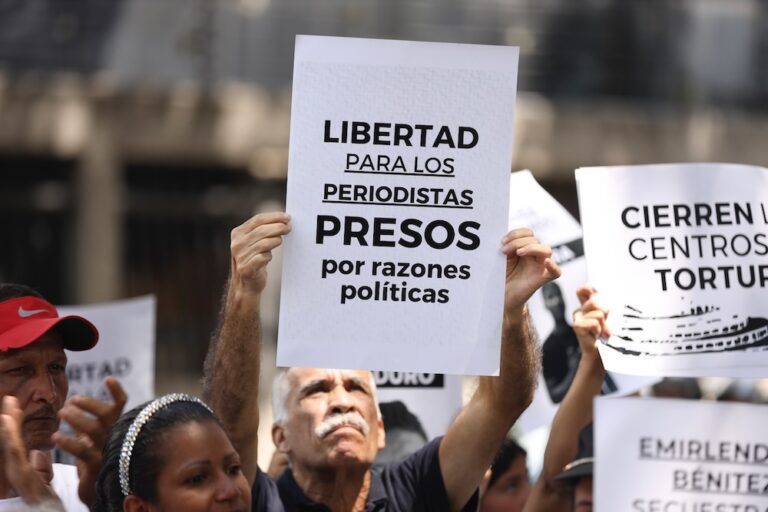(IAPA/IFEX) – The following is an IAPA press release: IAPA sends new murder case probe to rights panel MIAMI, Florida (July 28, 2000) – Today, the Inter American Press Association (IAPA) delivered to the executive secretary of the Inter-American Commission on Human Rights, Jorge Taiana, the findings of an investigation it conducted into the 1997 […]
(IAPA/IFEX) – The following is an IAPA press release:
IAPA sends new murder case probe to rights panel
MIAMI, Florida (July 28, 2000) – Today, the Inter American Press Association (IAPA) delivered to the executive secretary of the Inter-American Commission on Human Rights, Jorge Taiana, the findings of an investigation it conducted into the 1997 murders of a journalist in Brazil and another in Mexico.
The formal submission was made following the IAPA-sponsored Conference on the Inter-American Declaration on Freedom of Expression, held yesterday at the IAPA’s new headquarters building in Miami.
The chairman of the IAPA’s Impunity Committee, Alberto Ibargüen, presented the documents to Taiana. They concerned inquiries into the murder of Edgar Lopes de Faria in Brazil and of Benjamín Flores González in Mexico.
Ibargüen, publisher of The Miami Herald, Miami, Florida, explained that both cases were investigated by members of the Rapid Response Unit, set up in January this year by the IAPA. The unit is made up of investigative reporters who conduct on-the-spot inquiries into murders of their colleagues in the Western Hemisphere in a bid to bring the guilty to justice.
Lopes de Faria, murdered on October 29, 1997, was a radio commentator and television talk show host in Campo Grande, Mato Grosso do Sul state, Brazil, and Flores González, killed on July 15, 1997, was the editor of the daily La Prensa in San Luis Río Colorado, Sonora state, Mexico. In both cases, the Rapid Response Unit found irregularities in the official investigations.
“For the IAPA this action represents the culmination of a stage. In submitting the documentation to the Inter-American Commission on Human Rights we seek to have our denunciation placed before the highest levels of government so that the cases may be solved and in the end the murderers be brought to justice,” Ibargüen said.
Taiana praised the work that the IAPA was carrying out on the issue of unpunished crimes against journalists and declared that “although we cannot bring the victims back to life and it is always sad to receive denunciations, especially if they refer to murders, we certainly can go about getting the cases solved.”
The IAPA findings in the two murder cases had the support of, and were signed by, former Nicaraguan president Violeta Chamorro, whose husband, editor Pedro Joaquín, was murdered in 1978.
The IAPA has now provided documentation to the Inter-American Commission on Human Rights on a total of 15 cases of murdered journalists. Details are posted on the Association’s dedicated Web site, www.impunidad.com
Figures compiled by the hemispheric free-press organization show that from October last year to date, 16 journalists were murdered – six of them in Colombia, five in Mexico, two in Guatemala and one each in Haiti, Paraguay and Uruguay. The death toll for the past 12 years stands at 226.


